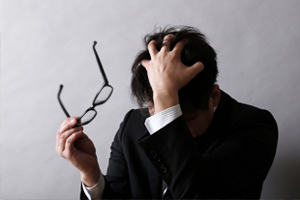Bipolar Hotline
Ad Disclosure: Some of our www.MentalHelp.net recommendations, including BetterHelp, are also affiliates, and as such we may receive compensation from them if you choose to purchase products or services through the links provided
Ad Disclosure: Some of our www.MentalHelp.net recommendations, including BetterHelp, are also affiliates, and as such we may receive compensation from them if you choose to purchase products or services through the links provided

Characterized by dramatic mood swings from severe depression to frenzied mania, bipolar disorder is a chronic, lifelong mental health disorder that can create difficulty in many areas of functioning. When severe, phases of depression can lead to suicidal thoughts, while manic periods can include risk-taking behavior, reckless decisions, impulsivity, and substance use.1–4
If you or a loved one needs help coping with bipolar disorder and managing the effects of depression or mania, call a bipolar crisis hotline for confidential assistance. If you are in danger of harming yourself or others, call 911 immediately.
The extreme highs and lows of bipolar disorder can leave you with unanswered questions and fears about the future. Whether you’re in the midst of a crisis or seeking to prevent another episode, the trained support specialists at a bipolar hotline can provide information about the disorder, connect you with potential treatment options, and provide guidance on how to reduce the impact of the illness on your daily functioning.
Explore Your Options Today
Many hotlines are available 24/7 to learn about how to encourage and support someone with bipolar disorder.
Bipolar disorder helplines are completely anonymous, so you shouldn’t be afraid to bring up any questions or personal concerns. Many hotlines are available 24/7 for your convenience, and they are also a helpful resource for family members, friends, and loved ones to learn about how to encourage and support someone with bipolar disorder.
Some reasons to call a bipolar disorder hotline include:
Bipolar disorder is often accompanied by some form substance use and can result in addiction. People suffering from bipolar disorder may use drugs or alcohol to cope with and escape from the struggle they are dealing with. When someone has an addiction along with another mental health diagnosis, it is known as a dual diagnosis.
Dual diagnosis can be made up of a combination of disorders and is not specific to depression. If you are suffering from an addiction as well, you may want to consider using an addiction hotline.
Many addiction programs specialize in dual diagnosis. American Addiction Centers in particular has 8 facilities across the United States specializing in dual diagnosis treatment. At American Addiction Centers we focus on not only the addiction, but the underlying problem causing the addiction as well. Call our confidential hotline for a free consultation and more information at 1-888-993-3112Who Answers?.
If you’d like to know whether your insurance may cover the full or partial cost of substance abuse rehabilitation programs at one of American Addiction Centers’ various rehab centers across the states, simply fill in your information in the form below.

Some people may be uncomfortable discussing their bipolar disorder due to the stigma surrounding mental health issues in society. Making a confidential call to a bipolar helpline can help you learn more about the illness and ask any questions in a safe, judgment-free zone.
Bipolar hotlines are a no-cost way to obtain reliable information about the disease and support resources, as well as crisis intervention if needed. If you are experiencing a severe manic or depressive episode, or just have general questions about bipolar disorder, you might consider calling a helpline.
Some common questions include:
If you think that a family member, friend, or loved one may be bipolar, knowing more about the disorder can help you be as supportive as possible. Bipolar help hotlines can help you learn more about the condition and how to be most helpful to someone with bipolar disorder.
Questions you may have include:

Sometimes known as manic depression, bipolar disorder can appear at any age but is generally diagnosed in the late teens or early twenties.3 The term “bipolar disorder” actually represents a cluster of related mood disorders that, in general, are characterized by the lifetime existence of manic and depressive episodes of varying magnitudes. Bipolar disorder can be debilitating, especially if proper medical treatment is avoided. Individuals with bipolar disorder are 15 times more likely to commit suicide than the general population.4
Other complications due to bipolar disorder can include performance issues at work or school, legal problems, financial troubles, strained relationships, substance abuse, and increased risk of sexually transmitted diseases due to risky sexual behavior.3,4
Nearly 75% of individuals with bipolar disorder also suffer from anxiety disorders.
Below are some common symptoms of the different phases of bipolar disorder:1–4
People with bipolar disorder are also at higher risk of other mental health issues. Common co-occurring illnesses include anxiety disorders, substance abuse, eating disorders, psychosis, attention-deficit hyperactivity disorder (ADHD), and other impulse control or conduct disorders.2–4
Nearly 75% of individuals with bipolar disorder also suffer from anxiety disorders, while more than half also struggle with substance use disorders.4
Mania and depression involve much more than the normal ups and downs of mood that most people experience. When going through a manic episode, individuals may experience the following:1–4
In contrast, episodes of depression may be characterized by the following symptoms:1–4
It can also be helpful to keep track of moods, sleep patterns, life events, and response to treatment methods to determine the best course of treatment.
Seeking professional treatment for bipolar disorder is essential in managing these symptoms. Bipolar disorder is treated with a combination of medication, therapy, and lifestyle changes. Medications that are commonly used include mood stabilizers to reduce the extreme highs and lows, antidepressants to manage symptoms of depression, and antipsychotics to treat psychotic symptoms, if necessary.1–3
Psychotherapy, including cognitive-behavioral therapy (CBT), education about the disease, and family-focused therapy, have been found effective when used in conjunction with medication.1,2 In severe cases, electroconvulsive therapy (ECT) may help reduce the symptoms.1,2
Making lifestyle changes can also reduce the intensity and impact of symptoms and help maximize the effectiveness of other forms of treatment. Simple changes that can make a big impact include eating a healthy diet, maintaining normal sleep cycles, avoiding stressors and triggers, and avoiding use of alcohol or other drugs. It can also be helpful to keep track of moods, sleep patterns, life events, and response to treatment methods to determine the best course of treatment.1–3
If you or a loved one is showing signs of bipolar disorder, a hotline can help you through a crisis or find a treatment program where you can learn to manage symptoms and other mental health issues or substance abuse you may be experiencing.
If you’re feeling hopeless and unable to carry on because of the severe impact bipolar symptoms have on your life, this national hotline is available 24/7 to provide confidential crisis intervention and emotional support at no cost. An online live chat option is also available if you don’t want to speak to a person over the phone.
When you’re ready to get help, SAMHSA’s behavioral health treatment locator is an easy, confidential, and free way to find an appropriate program to meet their needs. Support is available in English and Spanish, and the 24-hour service can also help you find local support groups or community organizations in your area.
Bipolar disorder can be especially challenging for adolescents. Boys Town is an excellent resource for teenagers to seek counseling and advice about a range of mental health issues, including bipolar disorder. Their free hotline offers support in English, Spanish, and many other languages, and their sister site Your Life Your Voice offers support offered via telephone, online chat, text, and e-mails, as well as informational articles and a forum for users to post their questions.
The compassionate staff at NAMI are trained to help you manage a mental health crisis and understand the struggles people with bipolar disorder face. This free hotline is open Monday through Friday from 10am to 6pm, EST. Get answers to your questions and information on mental health treatment, education, support groups, vocational assistance, and legal assistance. NAMI is also an excellent resource for friends and loved ones of people struggling with mental health issues like bipolar disorder.
This helpline provides support via text message during crisis situations and can also be used if you simply need to talk because you are feeling angry, frustrated, scared, or hurt because of a bipolar episode. Counselors provide confidential support around the clock, and the text message does not appear on your phone bill to maintain privacy.
Sources